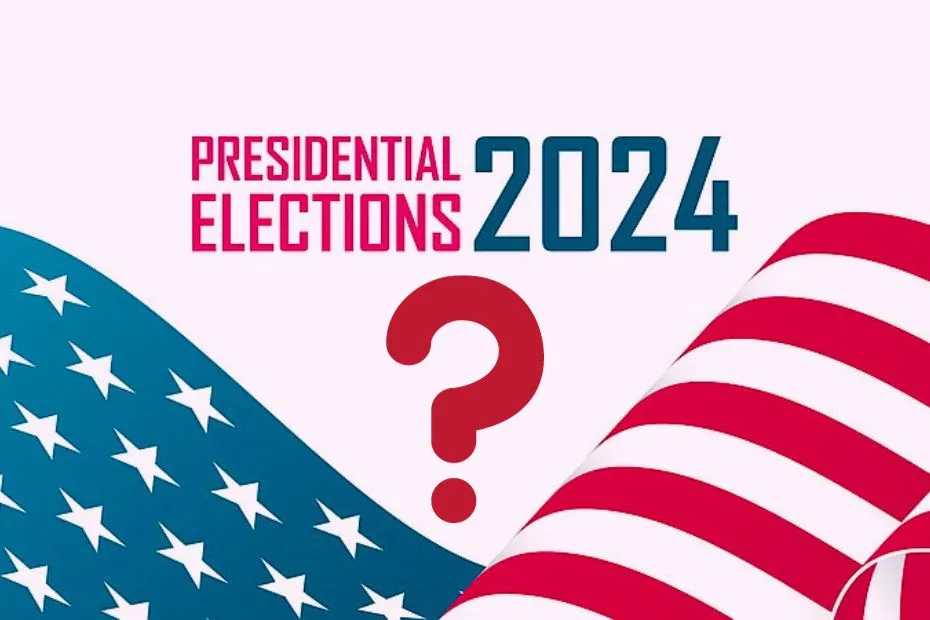Last updated on November 30th, 2023 at 09:49 am
As the 2024 U.S. Presidential Election approaches, the political landscape is buzzing with anticipation and speculation. This election, scheduled for November 5, 2024, is not just another political event; it’s shaping up to be a pivotal moment in American history.
The Candidates and Public Sentiment
The race could potentially see a rematch between former President Donald Trump and current President Joe Biden. However, public enthusiasm for both seems tepid. A YouGov poll in August revealed that “54 percent of voters disapproved of Mr. Biden and 58 percent disapproved of Mr. Trump.” This sentiment reflects a broader search for fresh leadership within both parties.
Age and Legal Challenges
Biden, who will be 81 at the time of the election, faces scrutiny over his age and controversies surrounding his son’s business dealings. Trump, on the other hand, will be 78 and is contending with several criminal indictments. Despite these challenges, Trump has stated, “I will continue my campaign even if arrested,” showcasing his unwavering commitment to the race.
Following the 2020 census, the electoral college has seen changes. Texas, for instance, has gained two electoral votes. These adjustments could play a crucial role in the election outcome.
2024 U.S. Presidential Election Key Dates and Events
2024: The Iowa caucuses in January will provide early insights into candidate support.
July 15-18, 2024: The Republican National Convention in Milwaukee.
August 19-22, 2024: The Democratic National Convention in Chicago.
November 5, 2024: Election Day.
The Process: Primaries, Caucuses, and Super Tuesday
The candidate selection process involves a mix of primaries and caucuses, with the Republicans opting for a secret ballot in caucuses, while Democrats use a more complex system. Super Tuesday remains a critical milestone, often determining the trajectory of the nomination race.
Election Day Dynamics
The election will include traditional voting, early voting, and mail-in ballots. Counting these votes can vary by state, sometimes delaying final results.
Battleground States
States like Arizona, Georgia, Wisconsin, and Nevada are expected to be key battlegrounds. Interestingly, Florida and Ohio, once swing states, are now seen as leaning Republican.
The 2020 Election Aftermath
The 2020 election’s aftermath, particularly Trump’s refusal to concede and the subsequent Capitol riot, continues to cast a shadow over the political discourse.
Polls and Predictions
In the Republican primary race, Trump is leading, with Ron DeSantis and Nikki Haley trailing. For the Democrats, Biden remains the frontrunner without significant competition. However, the possibility of third-party candidates, like Robert F Kennedy Jr., could shake up the general election dynamics.
Frequently Asked Questions about the 2024 U.S. Presidential Election
When is the Next Presidential Election?
The election is scheduled for November 5, 2024.
Who are the potential candidates for the 2024 election?
Former President Donald Trump and current President Joe Biden are potential candidates. Other names like Ron DeSantis and Nikki Haley are also in the mix for the Republicans, while Biden appears to be the frontrunner for the Democrats.
What are the key issues in the 2024 election?
Key issues include the candidates’ ages, legal challenges facing Trump, and public dissatisfaction with current political leadership. Economic policies, healthcare, and national security are also likely to be significant topics.
How does the Electoral College impact the election?
A candidate needs a majority of the 538 electors, meaning at least 270, to win the presidency. The 2020 census reapportionment has altered the electoral college makeup, with states like Texas gaining votes.
What are the battleground states for 2024?
Arizona, Georgia, Wisconsin, and Nevada are expected to be pivotal. Florida and Ohio, traditionally swing states, are now leaning Republican.
How do primaries and caucuses work in the election process?
Primaries and caucuses are used by parties to select their presidential candidates. The Republicans use a secret ballot in caucuses, while Democrats have a more complex process with a 15% threshold for candidates.
What is Super Tuesday?
Super Tuesday is a significant day in the nomination process when multiple states hold primaries or caucuses. It often plays a crucial role in determining the leading candidates.
Can Trump run for president if he’s facing legal issues?
Yes, Trump can run for president even if indicted or convicted. Historical precedent shows Eugene Debs ran from prison in 1920.
How do early voting and mail-in voting work?
Voters can choose to vote before Election Day either through early voting in person or by mailing in their ballots. The process varies by state.
What were the controversies surrounding the 2020 election?
Donald Trump contested the 2020 election results, leading to several legal challenges and the Capitol riot on January 6, 2021. These events continue to influence political discourse.
When are the national conventions scheduled?
The Republican National Convention is from July 15-18, 2024, in Milwaukee, and the Democratic National Convention is from August 19-22, 2024, in Chicago.
What impact could third-party candidates have on the election?
Third-party candidates, like Robert F Kennedy Jr., could potentially draw votes away from the major party candidates, influencing the overall outcome of the election.
The 2024 Presidential Election is more than a political contest; it’s a reflection of America’s current state and its future direction. With aging candidates, legal entanglements, and a shifting electoral map, this election promises to be a critical juncture in American politics. As we move closer to Election Day, the nation watches and waits, ready to play its part in shaping the next chapter of American history.
